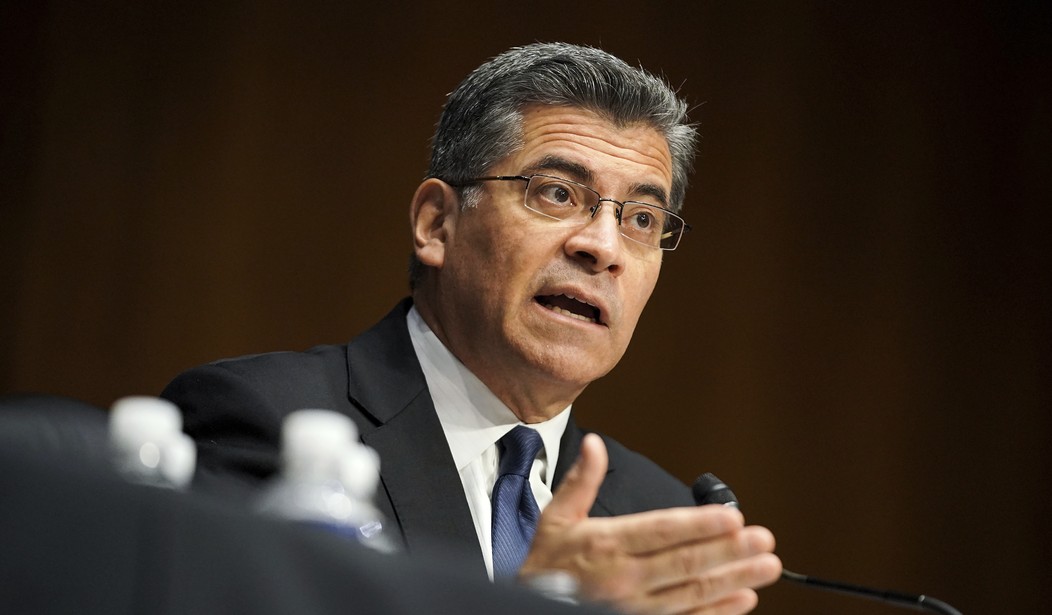The Biden administration – and Biden’s nominees – are engaging in a new trend: talking about faith and religion when asked about abortion.
President Biden’s nominee for secretary of the Department of Health and Human Services, Xavier Becerra, recently testified during a Senate confirmation hearing. When one senator asked him about abortion restrictions on February 24, Becerra avoided listing any limits that he might support – a position at odds with most Americans. Instead, he brought up his mother’s daily rosary.
In other words, Becerra pointed to his family’s Catholic faith while failing to support restrictions on abortion – an issue that the Catholic Church considers a grave evil.
Several senators questioned Becerra about abortion, including Senator Steve Daines (R-MT), who asked Becerra if he could “name one abortion restriction that you might support.”
Becerra, who boasts perfect ratings from abortion organizations including Planned Parenthood and NARAL, dodged the question. Becerra has indicated his support for abortion multiple times, from voting against a partial-birth abortion ban to voting against penalities for sex-selective abortions. As attorney general of California, he brought charges against pro-life activists in 2017 after they investigated the trafficking of aborted baby parts.
“I have tried to make sure on this important issue for so many people – where oftentimes, again, we have different views, but deeply held views – that I have tried to make sure that I am abiding by the law,” Becerra answered. “Whether it’s a particular restriction or whether it’s the whole idea of abortion, whether we agree or not, we have to come to some conclusion.”
Daines repeated his question: “Is there just one – just one restriction as relates to abortion that you might support?”
Again, Becerra didn’t answer. This time, he pointed to his wife, an OBG-YN “who for decades has practiced saving lives of women and babies.”
“From the stories I've heard from Carolina, my wife, I know how hard many women struggle just to save the life of their baby,” he responded.
Recommended
That’s when he brought up a seemingly unrelated topic: his family’s Catholic faith.
“My mother has blessed me this morning as I got ready to come here, and last night I know when she prayed the rosary, as she does every day – every evening with my aunt – that she said a prayer and included me in that prayer.”
Becerra himself publicly identifies as Catholic, even though he filed a lawsuit in 2017 over religious exemptions to an Obamacare mandate forcing employers to offer contraceptives – a suit that impacted Catholic nuns. Abortion poses another conflict. His faith and his position on abortion are at odds – and his attempt to connect the two is problematic.
The Catechism of the Catholic Church, which summarizes Church teaching, appreciates the inherent dignity of the unborn.
“Human life must be respected and protected absolutely from the moment of conception,” the catechism reads. “From the first moment of his existence, a human being must be recognized as having the rights of a person.”
As recently as November, Pope Francis – a Church leader whom Becerra has praised – reaffirmed his condemnation of abortion.
“Is it fair to eliminate a human life to resolve a problem?” the pontiff wrote, referring to the abortion debate in Argentina. “Is it fair to hire a hitman to resolve a problem?”
Like Becerra, President Biden’s position also poses a conflict: While he calls himself publicly Catholic, he considers himself personally pro-life. In January, White House Press Secretary Jen Psaki dodged a question about pro-life policy by pointing to Biden’s faith.
"I will just take the opportunity to remind all of you that he is a devout Catholic and somebody who attends church regularly,” Psaki said of Biden.
At the same time, Catholic Church teaching openly and consistently challenges abortion.
“Since the first century the Church has affirmed the moral evil of every procured abortion,” the catechism reads.
The Church takes abortion, a “crime against human life,” so seriously that obtaining an abortion – and helping someone else get one – are grounds for automatic excommunication.
“Direct abortion, that is to say, abortion willed either as an end or a means, is gravely contrary to the moral law,” the catechism says, and “Formal cooperation in an abortion constitutes a grave offense.”
That said, the Church also emphasizes forgiveness for those who have obtained abortions.
“The Church does not thereby intend to restrict the scope of mercy,” the catechism adds, but instead “makes clear the gravity of the crime committed, the irreparable harm done to the innocent who is put to death, as well as to the parents and the whole of society.”
That didn’t come across at Becerra’s hearing. Daines called out Becerra for not answering his question about abortion restrictions and started to name particular ones for Becerra to address.
“How about a ban on the lethal discrimination of babies who are diagnosed with Down syndrome?” he asked.
Becerra refused to answer, saying, “Once again, if I can simply say to you that I respect the different views that are out there.”
Daines pushed back.
“If confirmed, you’re going to be the head of HHS,” he said. “That’s a huge organization that has profound impact on our society. How about a ban on sex-selective abortion?”
Becerra repeated, “I respect those who take a particular view. My job will be to make sure that I am following the law.”
Daines then asked Becerra about the current ban on partial-birth abortion. Becerra again avoided.
“You’re asking questions which will touch on aspects that I know have different views and what I can say is that I will make sure that I’m respecting the law,” he said.
Many politicians openly support abortion in the U.S. But to connect it to Catholicism – a religion that recognizes abortion as an evil that destroys a human person of inherent dignity and worth – is misleading.

























Join the conversation as a VIP Member